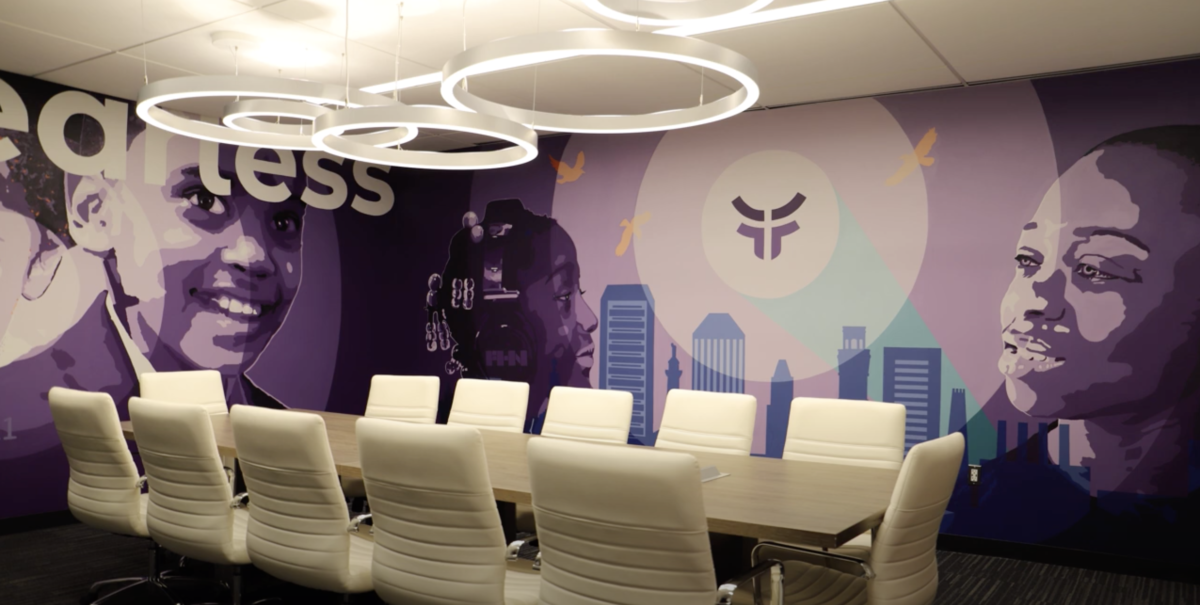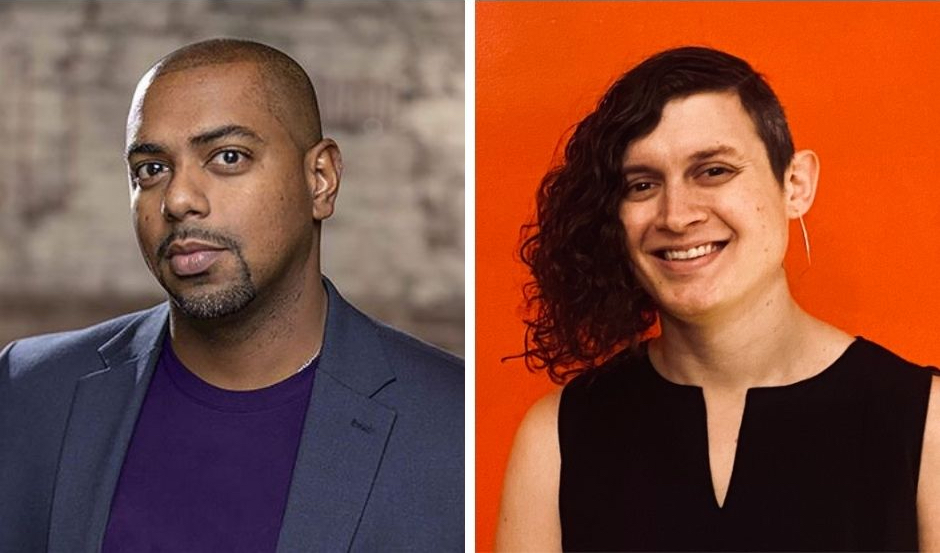A year after protests against police brutality upended the world, advancing diversity, equity and inclusion at companies is of the utmost significance.
A company’s hiring and leadership practices have a role in bringing change, but it also matters how team members support each other across roles and communities. To explore these dynamics, Technical.ly and our sister site Generocity organized a discussion Friday with Sam Chenkin, founder of Philly-based, equity-centered nonprofit consulting firm Reclaim the Sector and John Foster, COO of Baltimore digital services agency Fearless, on the Technical.ly public Slack’s AMA channel.
Chenkin and Foster discussed best practices for leadership, the barriers that interfere with organizational culture to make intentional change and what the tech and nonprofit sectors as a whole can do to be a better ally to marginalized groups. Here’s a look at key points from the conversation:
Establishing a more clear understanding of allyship matters
Allyship is often considered a practice in which an individual seeks to change the cultural practices of a space to make it more inclusive. Chenkin, however, believes there is more to consider than just that.
Chenkin shared that she struggles with the word “ally,” since it conveys a passive relationship to struggle and supporting someone else’s burden.
“To me, the goal should be taking on others’ struggles as our own,” she said on the Slack discussion. “No one is free until we all are free. But getting to that emotional and felt space can be hard, so I guess I’d consider allyship is a kind of harm reduction. [It’s about] trying imperfectly to redistribute power and address structural inequity. In the workplace, that might mean speaking up, or refusing to move forward until change is made, or even quitting to avoid perpetuating harm.”
Power must be redistributed for orgs to have equality
Chenkin added that “allyship” often is discussed without power distribution — a critical error when finding ways to create equality among all groups of people.
“The normal perception of ‘allyship’ doesn’t include power redistribution,” she said. “It’s more about saying the right things and virtue signaling. But shifting power is the only way change really happens. We won’t see a new world if we rely on ‘woke’ people making the right choice.”
We won't see a new world if we rely on 'woke' people making the right choice.
Read more from Chenkin on how leaders can share power.
Employees need to be able to bring their full selves to work
Foster said that allowing people to be their full selves at work is something that can make an organization’s culture that much more inclusive.
“As one of our core values at Fearless, we talk about people having the ability to bring their authentic selves to work every day,” he said. “That’s a very intentional thing that requires space not traditionally provided by most employers.”
Over the last year, the company has made that space for employees through virtual conversations and employee groups, but it has also meant building a culture that takes a “360-degree” view of an employee. Chenkin has also written about bringing one’s “whole self” to the workplace.
Reimagining DEI means knowing where you benefit from power and changing that
Chenkin has found that it can be hard for professionals in certain positions at organizations to make change towards equality when they are some of the people that benefit from the existing status quo.
“I think one of the biggest barriers is just that it’s super hard to see that you are part of the problem when you have power,” she said. “Things that might have felt like exploitative luxuries (high salary, vacation time, budgeting power, etc.) suddenly feel reasonable when they are benefiting you. We’re taught that there isn’t enough and for others to have something means we have to give something else.”

Decentering white privilege can help orgs avoid white saviorism
White-led organizations must consider how when working for change is productive. Chenkin believes that organizations often shift into white savior roles by trying to enact change in communities solely because they have the means to do so. This is a result of benefitting from power and money accrued over hundreds of years of slavery, in addition to economic and social exploitation. Their white privilege can make them poor fits for finding solutions to those very issues, she said.
“It’s people with experiences of oppression that know what change is needed,” she said. “Nonprofits led by and funded by white people should see their role as connecting [unfairly received] resources to the expertise of community members. Programs should be designed by and for the community.”
Read more of Chenkin’s thoughts on reshaping the nonprofit sector
Orgs have to be ready for difficult discussions if they want to improve their DEI practices
Fearless aims to amplify the work of existing community orgs, instead of taking over and displacing them. By doing that, communities end up winning with help from those that know them best.
Chenkin and Foster agreed that in their respective professional journeys, having clients admit to a lack of diversity on boards or in organizations can bring hard conversations. But this dialogue is typically the only way forward.
“The whole point of my approach is to design organizational structures that don’t rely on ‘wokeness’ or allyship,” Chenkin said. “The idea is to bypass it by just giving oppressed people the power to create policies and programs that work for them. But certainly we need to lean on feelings of allyship to create a willingness to let that kind of change happen in the first place. Change (especially structural change) is super scary, and people with power have to be willing to sit with [it].”
Supporting existing work allows orgs to better approach more equitable policies
Foster said Fearless aims to amplify the work of existing community orgs, instead of taking over and displacing them. By doing that, communities end up winning with help from those that know them best. Some of its work includes donating to local organizations in Baltimore advancing youth tech training, and investing in startups that center equity.
“At Fearless, one approach we have been taking is using our power to amplify [the] voices of others,” he said. “Sometimes for us it’s just making people aware of all the greatness out there, but in many other cases it’s about adding to the capacity of others.”







